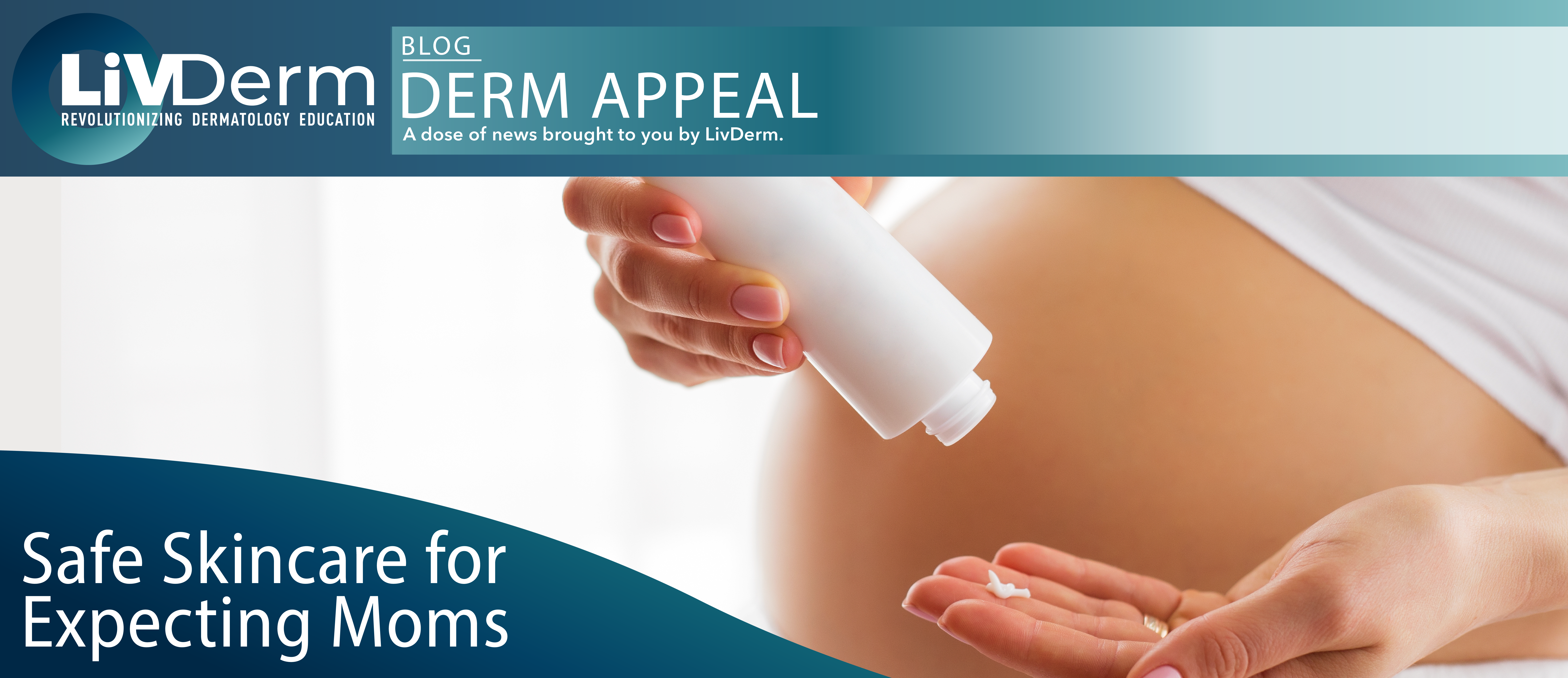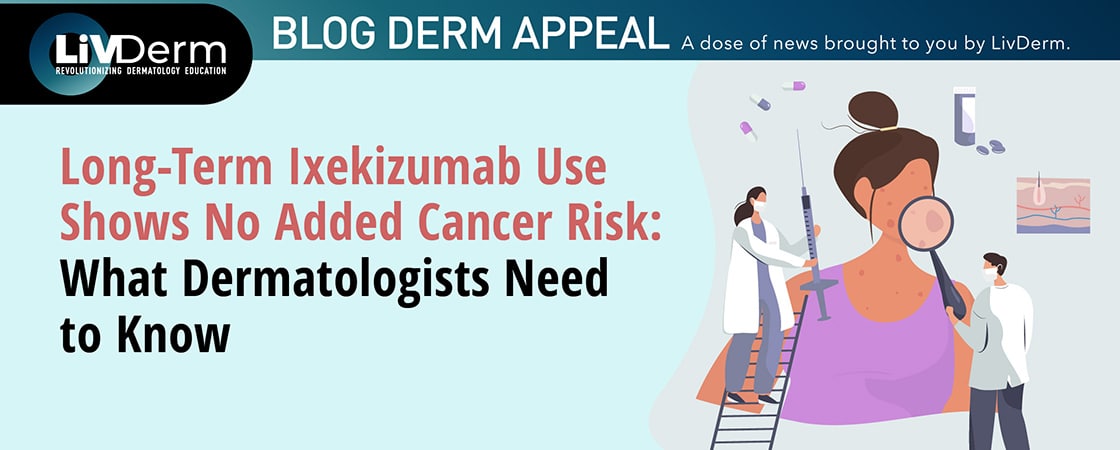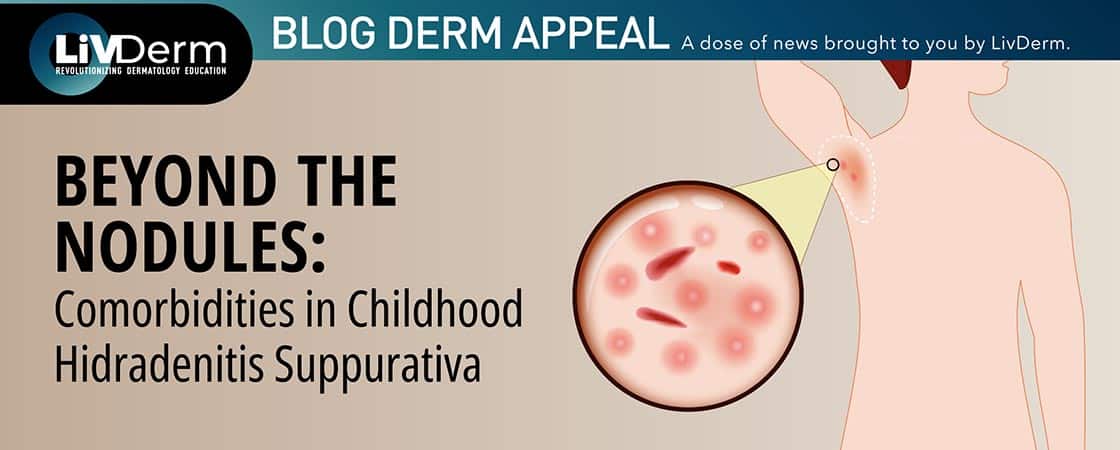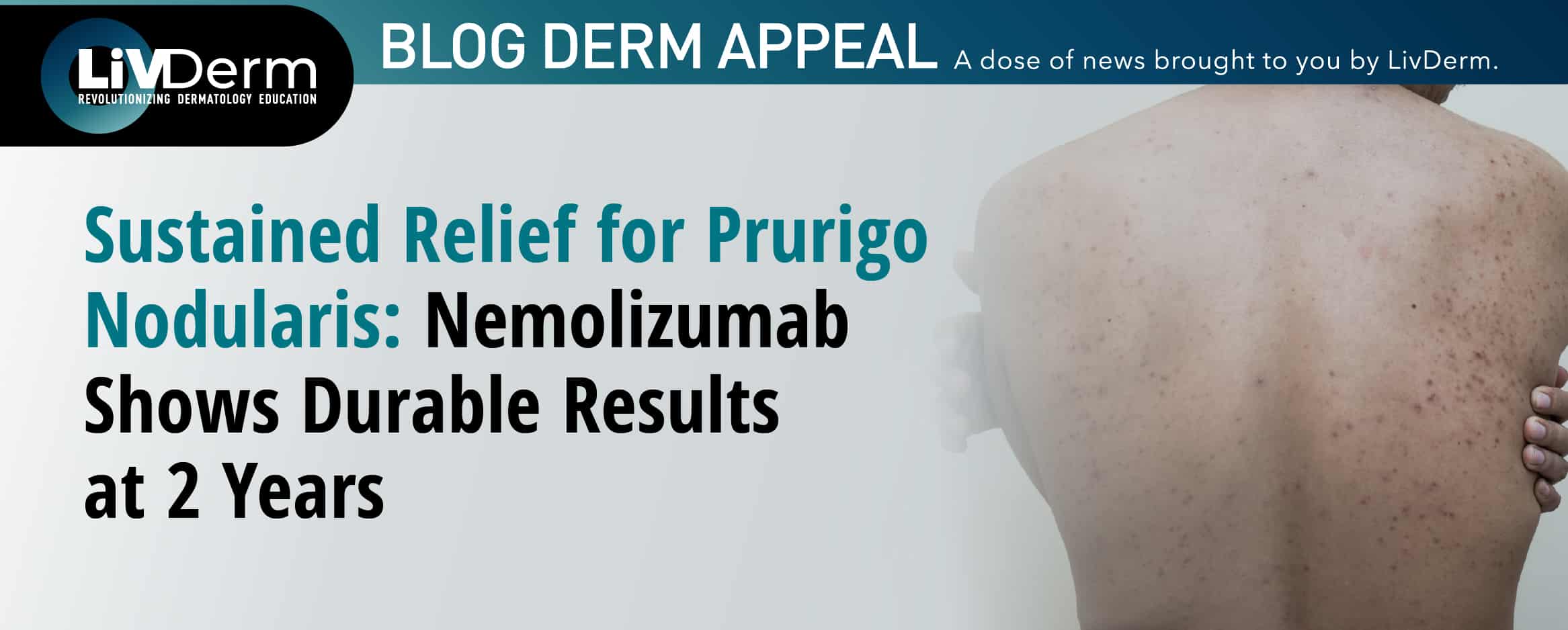Many women experience acne breakouts during their first trimester of pregnancy due to changing estrogen levels, even if they have no prior history of the skin disorder. Hormonal fluctuations often contribute to cutaneous changes, causing a host of symptoms from dry skin and irritation to melasma and inflammation. They may experience changes in existing moles, the development of skin tags, face flushing, as well as stretch marks, spider veins, and hair health concerns. Furthermore, women with preexisting skin conditions such as eczema, psoriasis, and rosacea may report their symptoms worsening.
Alongside pregnancy-related skin changes, women of childbearing age frequently use skincare products to combat signs of aging and other unwanted dermatologic conditions. However, there are significant safety concerns to keep in mind for this demographic including the potential for product absorption and sensitivity. Certain skincare product ingredients may be absorbed into the bloodstream through the skin, potentially affecting fetal growth and development. At the same time, pregnant women may experience increased skin sensitivity, including being more prone to allergic reactions to skincare products.
While most over-the-counter products are considered pregnancy-safe, certain skincare ingredients can have adverse effects when absorbed into the body and should not be used throughout the duration of pregnancy.
Skin Care Ingredients to Avoid
At this time, evidence-based data on the safety of specific products is limited due to the inability to conduct clinical trials on pregnant women. However, animal, anecdotal, and case-specific studies have revealed serious fetal effects associated with the use of certain ingredients commonly found in cosmetic products.
It is important to note that the Food and Drug Administration (FDA) requires cosmetic products to be “safe” based on their specified uses and labeling, however, they do not need FDA approval to be sold on the market.
The ingredients listed below are some of the ones commonly used in skincare products and are considered unsafe for use during pregnancy as they can either cause potential fetal harm when absorbed into the bloodstream or cause irritation in sensitive skin.
Retinoids
Used for their ability to speed up cell division and skin renewal while preventing collagen breakdown, retinoids are commonly present in anti-aging moisturizers and treatments for acne, pigmentation, and plaque psoriasis.
According to medical experts, pregnant women should avoid using retinoids as certain studies have reported that high doses of vitamin A can be harmful to unborn children. While over-the-counter products tend to have lower levels of retinoids, prescription medications such as tretinoin and oral products, contain much higher doses.
Oral retinoids such as isotretinoin, commonly known as Accutane, are know to cause birth defects; studies have found that they can post a 20% to 35% risk of severe congenital defects with up to 60% of affected children showing neurocognitive problems.
The use of topical retinoids has not been associated with such problems, however, extra caution is recommended.
Pregnant women are encouraged to avoid the following:
Avage, Fabior, Tazorac (tazarotene)
Avita (tretinoin)
Differin (adapelene)
Panretin (alitretinoin)
Retin-A, Renova (tretinoin)
Retinoic acid
Retinol
Retinyl linoleate
Retinyl palmitate
Targretin gel (bexarotene)
Alternative:
To combat pregnancy-related acne breakouts, expecting mothers are encouraged to use safer alternatives and avoid retinoid-based products. Two of the most effective are glycolic and azelaic acid which can help control breakouts, reduce fine lines, and reduce skin pigmentation.
The American College of Obsteticians and Gynecologists (ACOG) endorses both glycolic and azelaic acid as safe during pregnancy alongside topical benzoyl peroxide and low doses of topical salicylic acid
Additionally, topical antioxidants can be beneficial to safely enhance skin vitality by protecting it from damage and maintaining collagen – these include vitamins C, K, E, B3, and green tea.
High-Dose Salicylic Acid and Other Hydroxy Acids
Salicylic acid is frequently used to treat acne due to its anti-inflammatory properties, yet a 2013 study reported that products delivering a high dose of salicylic acid, including peels and oral medications, should be avoided during pregnancy. Research has found that high doses of oral salicylic acid – an ingredient also found in aspirin – have been shown to cause birth defects and various pregnancy complications.However, lower-dose topical over-the-counter products containing salicylic acid have been deemed safe by the ACOG.
In addition to salicylic acid, other hydroxy acids – including beta hydroxy acid (BHA) and alpha hydroxy acid (AHA) – are commonly found in products used to treat acne, skin inflammation, and redness as well as those used to target signs of aging.
Products containing the ingredients below should be used in limited amounts during pregnancy:
Alpha hydroxy acid (AHA)
Azelaic acid
Benzoyl peroxide
Beta hydroxy acids (BHA)
Beta hydroxybutanoic acid
Betaine salicylate
Citric acid
Dicarbonous acid
Glycolic acid
Hydroacetic acid
Hydroxyacetic acid
Hydroxycaproic acid
Lactic acid
Salicylic acid
Trethocanic acid
Tropic acid
2-hydroxyethanoic acid
Alternative:
In the case of this ingredient, glycolic acid used in low amounts has also proven to be an effective alternative. Additionally, mild over-the-counter products may be used after consultation with a dermatologist.
Chemical Sunscreens
Currently, the body of knowledge concerning the safety of chemical broad-spectrum sunscreens remains in development, however, it is best to avoid chemical-based products as well as those that contain hydroquinone as there is limited data to support their safety.
Alternative:
Instead of chemical sunscreens, mineral-based sunscreens that protect the skin using zinc oxide and titanium dioxide are recommend for use in pregnant patients.
Safe Skincare Products for Pregnant Women
Despite the list of potentially dangerous ingredients to avoid – which can be found here on the ACOG website – There are still many available options for skincare products that are safe to use in this patient group. The following products are among those that are deemed pregnancy-safe:
- Gentle, unscented cleansers and moisturizers
- Hyaluronic acid
- Benzoyl peroxide in limited amounts
- Vitamin C products
- Low-dose salicylic acid
Key Takeaways
During pregnancy, hormonal changes can contribute to the development or worsening of certain skin conditions yet the use of certain skincare products and their ingredients should be avoided due to potential complications. In combating unwanted skin changes, expecting mothers are advised to consult with their dermatologist to determine which products are right and safe for them to use.

















